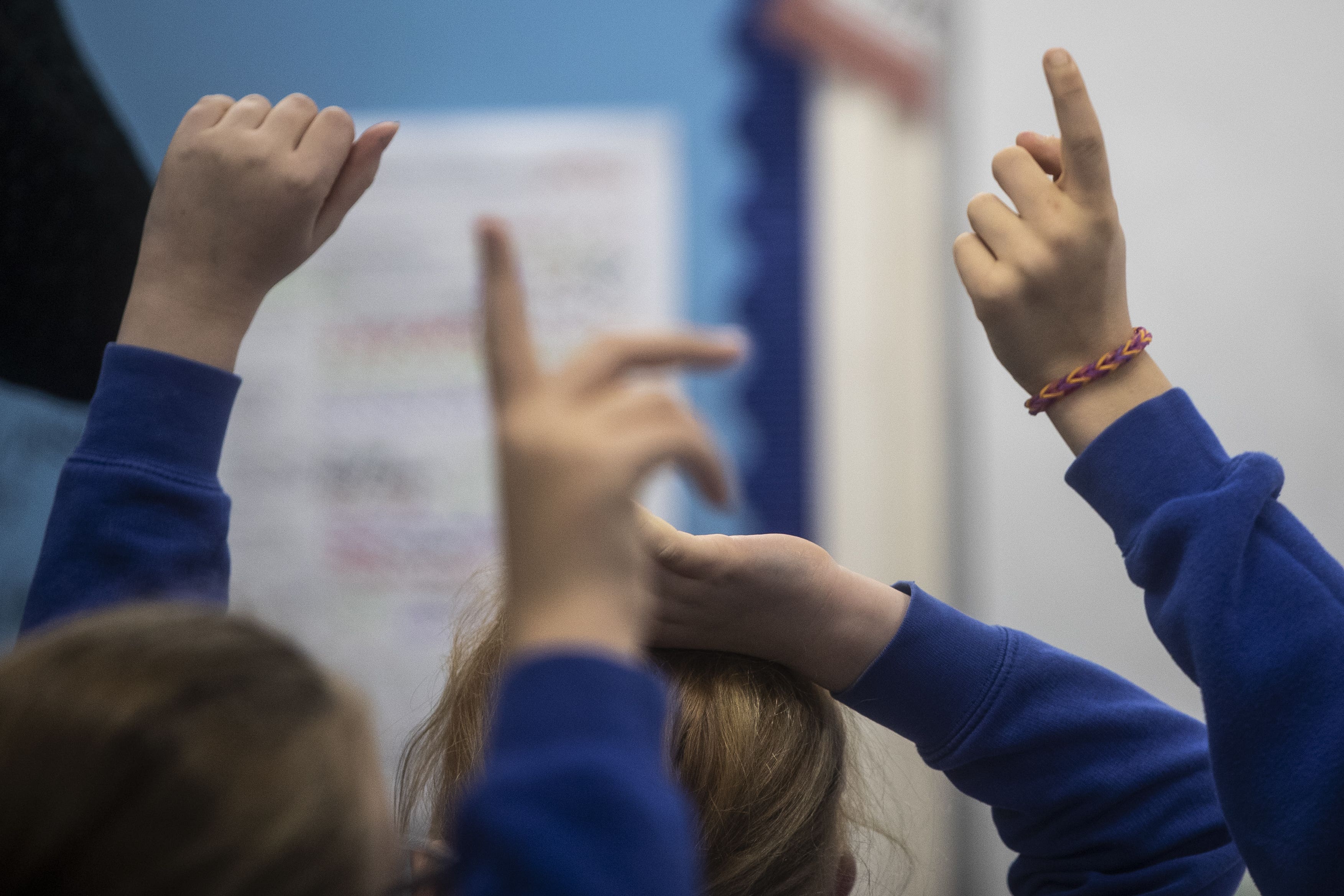More girls lack confidence when studying maths and science than boys – survey
The Teach First charity is calling for more high-quality Stem teachers to be recruited and trained to inspire the next generation.

Your support helps us to tell the story
From reproductive rights to climate change to Big Tech, The Independent is on the ground when the story is developing. Whether it's investigating the financials of Elon Musk's pro-Trump PAC or producing our latest documentary, 'The A Word', which shines a light on the American women fighting for reproductive rights, we know how important it is to parse out the facts from the messaging.
At such a critical moment in US history, we need reporters on the ground. Your donation allows us to keep sending journalists to speak to both sides of the story.
The Independent is trusted by Americans across the entire political spectrum. And unlike many other quality news outlets, we choose not to lock Americans out of our reporting and analysis with paywalls. We believe quality journalism should be available to everyone, paid for by those who can afford it.
Your support makes all the difference.More female pupils lack confidence when studying mathematics and science than their male peers, a survey has suggested.
The gender confidence gap poses a “threat” to the UK’s future science, technology, engineering and mathematics (Stem) workforce, education charity Teach First has warned.
A poll, commissioned by Teach First, found two in five (40%) pupils said they did not enjoy learning maths in school and 30% said they did not enjoy learning science.
Among the pupils who reported not enjoying maths in school, more than half of female pupils (54%) said they did not feel confident in learning maths, compared to two-fifths (41%) of male pupils.
The gap was even wider among pupils who said they did not enjoy science in school – with more than four in ten girls (43%) not confident compared with just about a quarter of boys (26%).
It’s deeply troubling that too few children feel confident studying science and maths, with too many girls in particular left behind
The findings come ahead of the International Day of Women and Girls in Science on Sunday.
More than 1,000 young people – aged between 11 and 16 – from across the UK took part in the YouGov poll between November 3 and November 10.
Teach First has warned the imbalance in learning confidence is a concern for the future of Stem as they say poor gender diversity will exacerbate the skills shortage facing the sector.
The charity is calling for more high-quality Stem teachers to be recruited and trained to inspire the next generation to work in the Stem sector.
Amy Mitchell, chief impact officer at Teach First, said: “It’s deeply troubling that too few children feel confident studying science and maths, with too many girls in particular left behind.
“Girls are just as capable as boys when it comes to maths and science, but this confidence gap poses a huge threat to the UK’s future, with Stem skills desperately needed to boost economic growth and to help tackle the major problems we face such as climate change.”
She added: “We urgently need an uplift in pay for trainee teachers to incentivise more people to become Stem teachers to empower the next generation, particularly in low-income areas.”
A Department for Education (DfE) spokesperson said: “We are continuing to promote Stem subjects and drive up participation, especially among girls.
“This includes investing £100 million to improve computing teaching and participation at GCSE and A-level, alongside targeted initiatives to boost uptake of maths, physics, digital and technical education by girls and among underrepresented groups.
“On top of this, we’re introducing the new Advanced British Standard (ABS) which will see every student in England study some form of maths and English to age 18.
“To attract the brightest and the best teachers, we offer bursaries and scholarships up to £30,000 for chemistry, computing, mathematics and physics teachers, alongside £3,000 tax-free for those in disadvantaged schools in the first five years of their career which will double to £6,000 tax-free over the next two years.
“This comes on top of the largest teacher pay rise in three decades and a minimum starting salary of £30,000.”